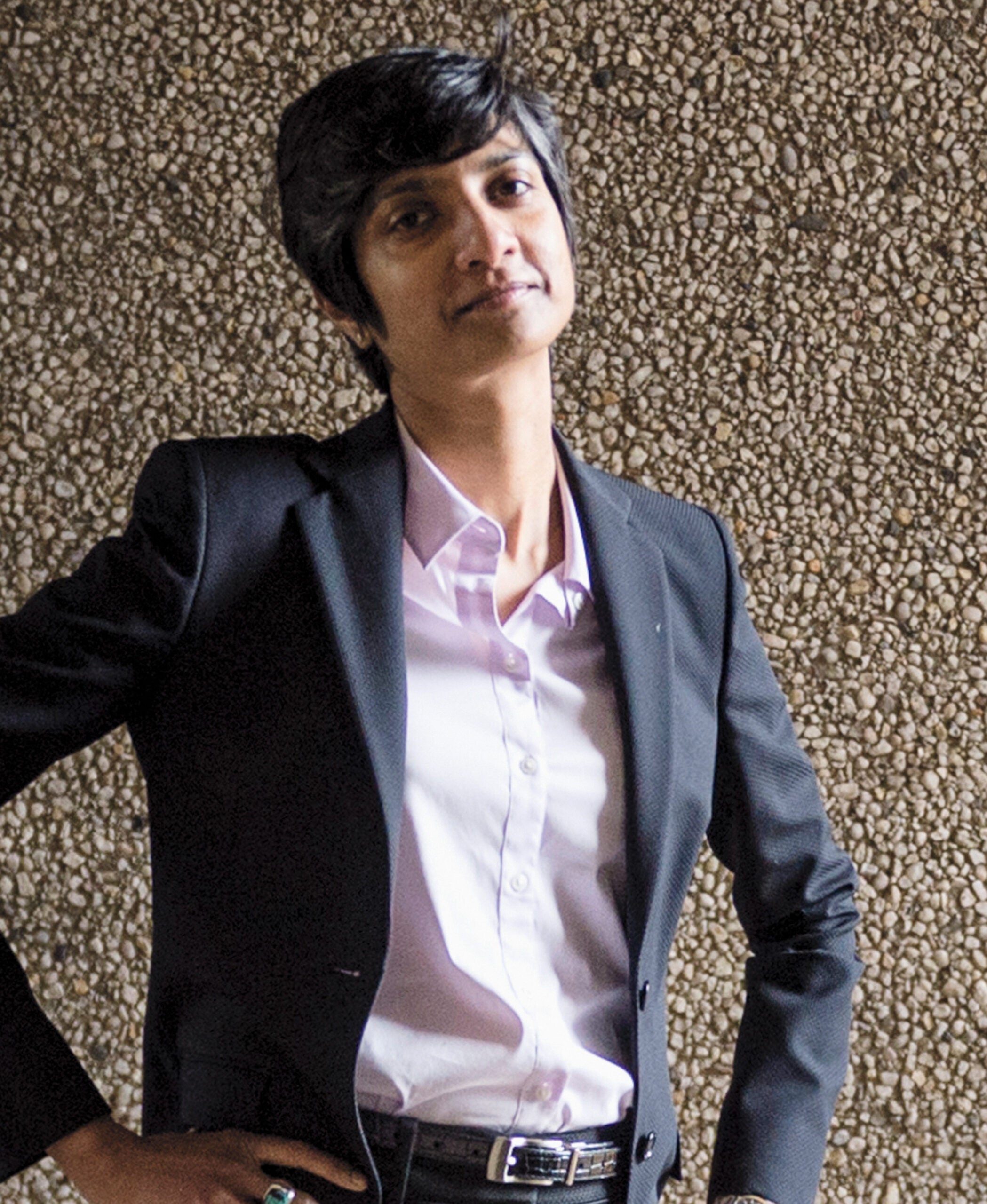Menaka Guruswamy LL.M. ’01 got the news when she turned on her phone after landing in Hyderabad: The Indian Supreme Court had reached a decision on a years-long case she’d been arguing challenging Section 377 of the Indian Penal Code, a colonial-era law criminalizing gay sex as “carnal intercourse against the order of nature.” A judgment would be issued the next day. Guruswamy and her partner, Arundhati Katju—a criminal lawyer and co-counsel on her five-person team—found themselves running for the last flight back to New Delhi. The gate was already closed, but after Guruswamy explained the situation, a sympathetic agent escorted them through security and onto the plane.
“Everything about the case was dramatic,” she says. “None of it was sane and even-keeled.” The 495-page ruling the next day, Sept. 6, 2018, striking down the law, was hailed in the international press for going beyond the decriminalization of gay sex to acknowledge the individual rights of LGBTQ people and apologize for past mistreatment.
The case’s petitioners included five prominent professionals from the arts, media, and business worlds, plus 20 students and graduates of the Indian Institutes of Technology. “The IIT students were wonderful to have as petitioners because they represent a diverse microcosm of India in terms of class, income and region,” Guruswamy says, adding that being a student at IIT (which has an acceptance rate of less than 2%) is seen by many in Indian society as the pinnacle of achievement. She was struck by the fact that despite their success, their affidavits included details of depression and other forms of mental illness stemming from the fear of living as a gay person in a country where homosexuality was illegal.
Sodomy cases, she says, rarely go to trial, and result in even fewer convictions due to lack of evidence. But statutes like Section 377 set the state’s moral tone: “They criminalize a people and tell them that who you love is just not OK.” Cited for her eloquence and conviction in the courtroom, Guruswamy brought the commitment and humanity of same-sex relationships to life as clear evidence that LGBTQ individuals should be extended the same basic constitutional rights of nondiscrimination, equality, expression, and dignity as other Indian citizens.
A senior advocate at the Indian Supreme Court, Guruswamy recently completed a research and teaching stint at Columbia University. Throughout and since that time, she has continued her work on constitutional rights cases, including one that involves allegations of 1,528 extrajudicial executions by Indian military and security personnel. Eight years into that work, she notes that it involves another colonial-era law, this one granting the military immunity from being prosecuted in civilian courts; in 2012, with Guruswamy appointed as amicus curiae, a ruling was issued that opened up the possibility of those cases being tried in court, a process that is ongoing.
“I think I’m drawn to constitutional law because it’s the only way you can expand human freedom outside of the legislative process,” Guruswamy says. “If you are a minority of any sort, in any country, a constitutional court is a great avenue for making progress.”
When the inevitable questions come up regarding next steps for gay rights in India—marriage, adoption—Guruswamy notes that last year’s ruling is still relatively young: “We’d like to see these issues trickle down into the court systems at the district level for the general population to take the next steps.” For now, she’s happy to see a broad shift happening in Indian society, perhaps most noticeably in the presence of gay protagonists and storylines in Indian movies and TV series. And she believes that change, when it comes, will come quickly, noting that the Supreme Court’s sweeping 2018 decision was a huge turnaround from a 2013 ruling (made by a two-judge panel) that only the legislature could overturn Section 377.
Guruswamy is also encouraged by cases brought to decriminalize homosexuality in Singapore, Botswana and Kenya that appear to have been catalyzed by the Indian ruling. “India is a constitutional democracy of the global south and a very conservative country,” she observes, describing a kind of “global constitutional conversation” that is taking place. “This is not Canada or the United States. You can’t make the argument that this ruling represents Western cultural values. The simple point being, if India can do it, why can’t we?”
